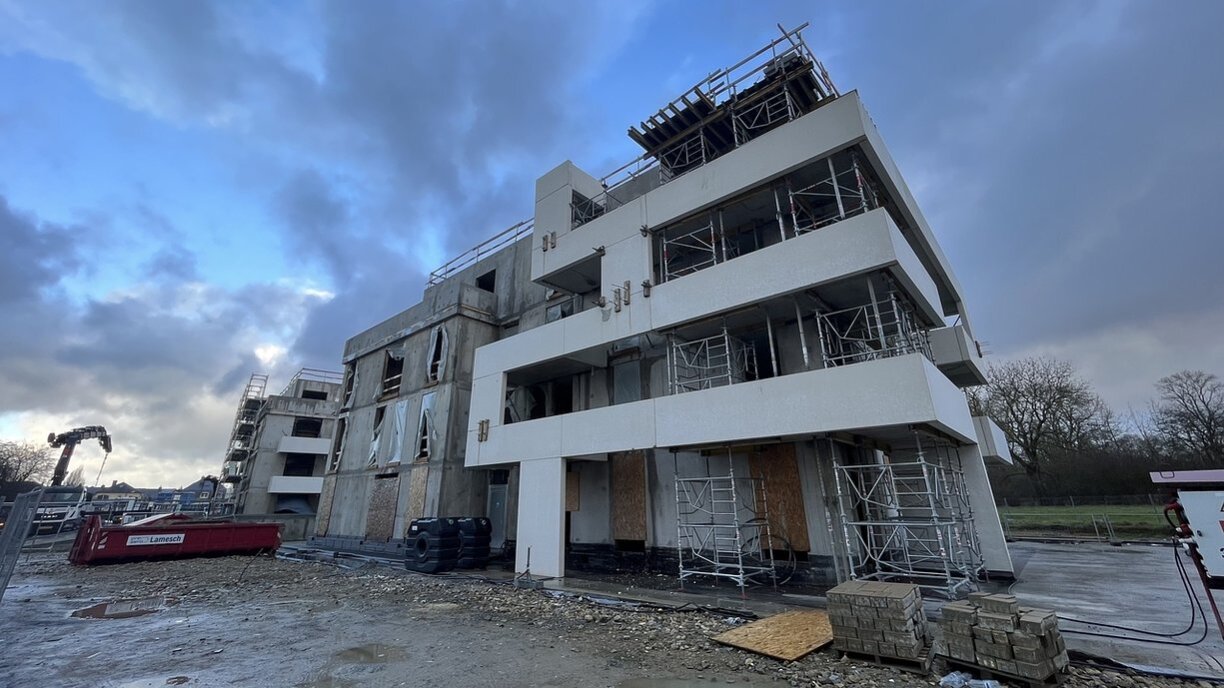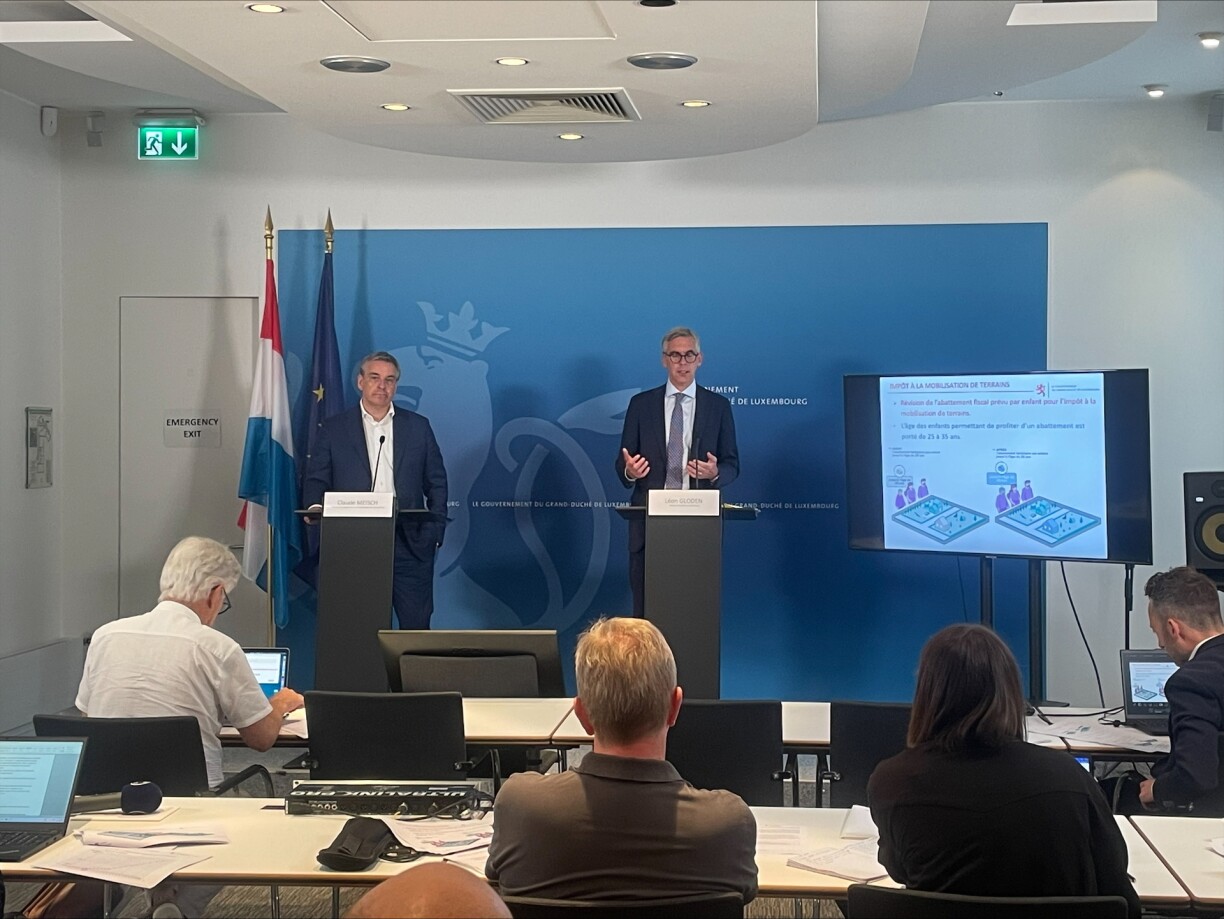
Minister for Home Affairs Léon Gloden and Minister of Housing Claude Meisch presented 66 amendments to former minister Taina Bofferding’s project in the Chamber of Deputies on Thursday, before proceeding to a press conference.
The property tax reform and the new tax on empty plots of land are to be introduced in a pilot phase in 2029, before taking full effect from 2030, say ministers.
“Build instead of speculate” is to be the government’s motto, said Gloden. In terms of property tax, he revealed a reduction is planned for owner-occupied housing, while land used for agriculture will become exempt.
Property tax criteria will also change: alongside the distance to the capital, the size of the plot and the services offered by the municipality, building potential will be taken into account to estimate the taxable value.
To calculate the tax itself, any potential or likely deductions will be taken away from the base value, which will then be multiplied by a communal rate. The amendments mean that, for example, a 6-are plot in Mersch would require tax of €172 per year, half as much as under the initial project prior to these changes.

The 9-11% range foreseen by the previous government has been eliminated, resulting in criticism from members of the opposition. Original author Taina Bofferding of the LSAP, the Greens’ Meris Sehovic and The Left’s David Wagner all said this measure could lead to dumping in municipalities that theoretically could not levy taxes.
The land mobilisation tax on empty plots will be due from the fifth year and increase gradually. A new feature of the project is that the reduction for owners keeping land to give to their children will be extended from 25 to 35 years. The opposition criticised the removal of a provision which stipulated that any owners selling the land to someone else would be required to repay the tax relief, and said this could open up avenues for abuse.
The bill on this property tax reform will now proceed through the legislative process. MPs will work on amendments to the vacant plot tax next year, as it requires the housing register which has not yet been submitted.